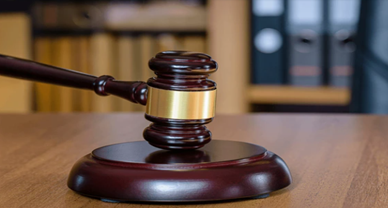Royally Teased, Not Tarnished: How the Delhi High Court Struck the Right Balance in RCB Vs. Uber India
INTRODUCTION
In the high-stakes realm of sports marketing and intellectual property, humour often ventures into murky territory. The recent clash between Royal Challengers Bengaluru (RCB) and Uber India over a playful IPL ad offers a timely case study. At the heart of the dispute lies the seemingly simple gag of “Royally Challenged” but its legal implications ran deep.
On May 5, 2025, the Delhi High Court, under Justice Saurabh Banerjee, dismissed RCB’s plea for an interim injunction against Uber’s “Baddies in Bengaluru” advertisement. The ruling clarified how trademark law intersects with parody, especially in the spirited context of sport. Let’s unpack the court’s reasoning and what it means for brands, creativity, and legal boundaries[1].
THE CONTROVERSIAL AD: FUNNY OR FOUL?
The Uber Moto ad in question features IPL star Travis Head, now with Sunrisers Hyderabad (SRH), entering a Bengaluru stadium and spray-painting the phrase “Royally Challenged” over “Bengaluru” on a sign that originally read “Bengaluru vs Hyderabad[2].” He then makes a swift getaway on an Uber Moto bike, cheekily signaling – “RCB, you’re royally challenged.” The ad, which tagged RCB’s popular slogan “Ee Sala Cup Namde” (This year, the cup is ours), racked up over 1.3 million views on YouTube.
RCB alleged that the ad disparaged their brand and diluted their trademark, exploiting their identity for commercial gain. They claimed the distortion, “Royally Challenged” instead of “Challengers”, along with appropriation of their slogan, caused reputational harm.
COURTROOM SHOWDOWN: RCB’S LEGAL ARGUMENTS
RCB’s legal team argued:
- The phrase “Royally Challenged” was a deprecatory twist on their registered trademark “Royal Challengers Bengaluru,” thus diluting and disparaging it.
- The inclusion of “Ee Sala Cup Namde” wrongly used a slogan closely associated with the team’s brand.
- Asserting that the ad caused harm in reputation among fans and the public, threatening the goodwill built around the team.
Essentially, RCB viewed the ad as more than playful, it was a calculated attempt to mock and undermine their brand during IPL season.
UBER’S DEFENSE: BANTER, NOT BAD FAITH
Uber’s counsel countered with a sharp rebuttal:
- The ad was self-evidently humorous a pun, not a targeted attack and part of cricket’s playful, rivalry-infused culture.
- They invoked commercial free speech under Article 19(1)(a) of the Indian Constitution, arguing that creative advertising shouldn’t be stifled by overzealous litigation.
- RCB had “severely discounted” the public’s sense of humour, Uber’s counsel contended, and any interference would kill the spirit of fun in advertising.
THE COURT’S VERDICT: BANTER WINS
- Disparagement? Not Quite
Justice Banerjee held that for disparagement, the ad must degrade with falsehood or injurious intent. He ruled that:
- An average viewer would perceive it as light-hearted sport banter, not aimed to demean RCB.
- There was no malicious content, no false claims, derogatory remarks, or denigration of the team’s performance.
- Trademark Infringement Under Section 29(4)? Not Met
Section 29(4) of India’s Trade Marks Act, 1999 triggers infringement only when:
- A mark is used deceptively or without due cause;
- The use unfairly exploits or damages the reputation or distinctive character of the original trademark.
The court found:
- Merely twisting the name to “Royally Challenged,” without commercial exploitation or negative impact on RCB’s mark, isn’t enough.
- There was no evidence that Uber gained undue advantage or diluted RCB’s goodwill.
- Free Speech and the Balance of Convenience
Drawing from Supreme Court decisions like Bloomberg Television v. Zee Entertainment[3] and Tata Press v. MTNL[4], Justice Banerjee emphasized:
- Creative expression in advertising must enjoy protection unless harm is clearly shown.
- RCB failed to prove irreparable harm or loss; even some RCB fans reacted positively to the ad.
- The balance of convenience tipped in favor of allowing the ad to run; stopping it prematurely would curtail permissible expression.
Thus, the court declined to issue an interim injunction, noting that judicial restraint is vital where speech even when cheeky is culturally accepted
WHY THIS RULING MATTERS
- A Win for Commercial Free Speech – The ruling reinforces that trademark law isn’t a shield against every bit of witty parody. Advertisers can engage in cultural inside-jokes, especially in sporting contexts—without fear of legal reprisal.
- Context Is King – Sporting culture embraces banter as part of its fabric. Courts recognizing this cultural norm instead of interpreting statutes rigidly show legal sensitivity to societal norms.
- Encourages Proportionate Litigation – Not every trademark holder should rush for an injunction at the slightest jab. This ruling signals that the judiciary will weigh intent, audience perception, and potential harm before curtailing expression.
CONCLUSION
In RCB v. Uber India, the Delhi High Court drew a line between playful parody and legal wrongdoing. Justice Banerjee’s astute ruling affirmed that trademark protection must coexist with commercial free speech, especially when humour and sports passion are involved. The decision is a nod to India’s cultural ethos, acknowledging that a gentle nudge, “Royally Challenged” is sometimes just that, and not a mark of legal damage.
Author:– Dhriti Anil Kawale, in case of any queries please contact/write back to us at support@ipandlegalfilings.com or IP & Legal Filing.
[1] https://images.assettype.com/barandbench/2025-05-05/2e7h0f1j/RCB_Vs_Uber.pdf
[2] https://www.mondaq.com/india/sport/1662496/rcb-bowled-out-court-dismisses-plea-over-uber-motos-travis-head-ad
[3] https://www.scconline.com/blog/post/2024/03/26/sc-set-aside-order-directing-bloomberg-to-remove-article-on-zee-entertainment-legal-news/
[4] https://indiankanoon.org/doc/752455/


